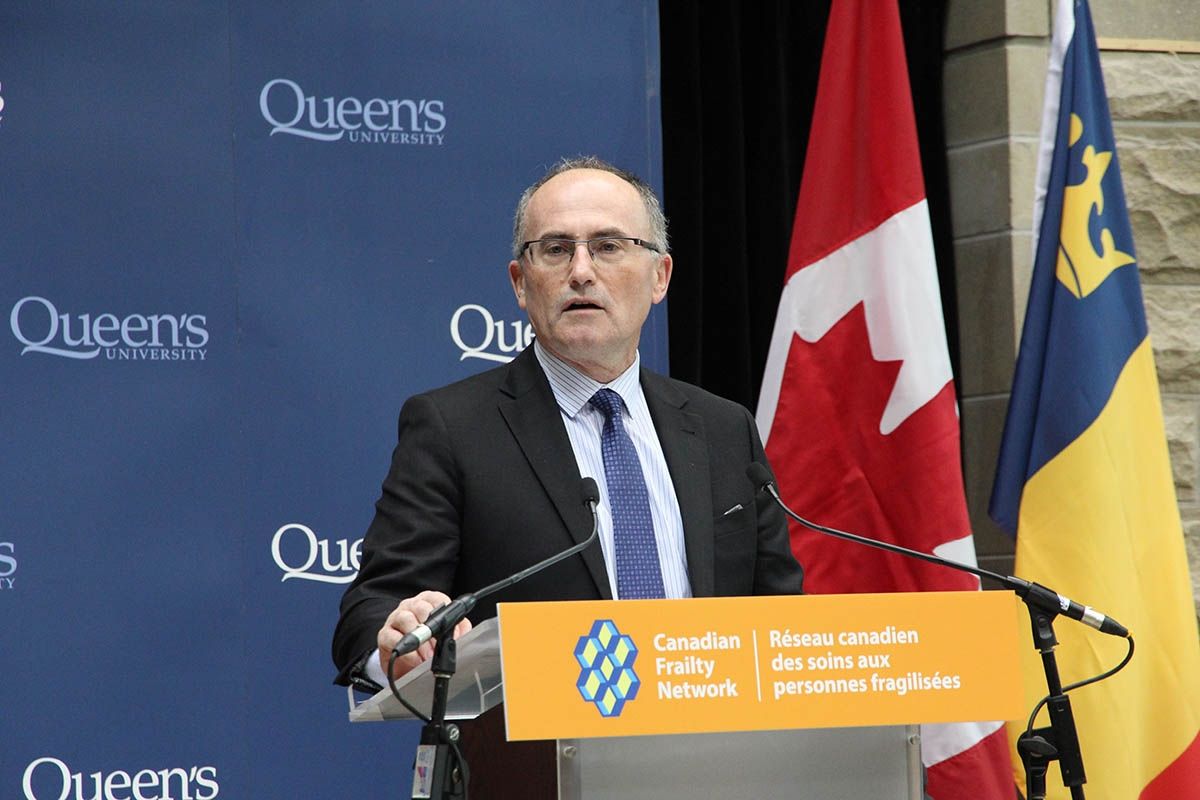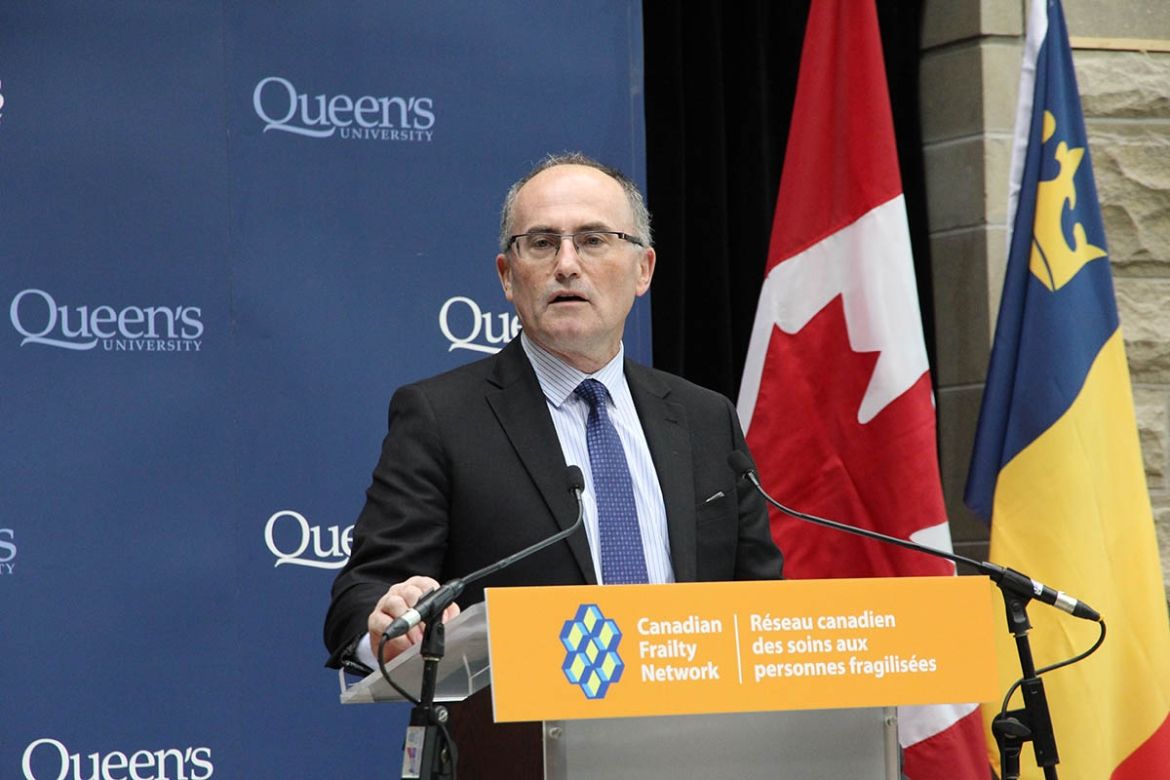
An internationally renowned research centre of excellence targeting the frail elderly and hosted by Queen’s University and Kingston General Hospital has received $23.9 million in renewal funding from the Government of Canada’s Networks of Centres of Excellence. The funding will be matched by $30 million in contributions from 150 partners across Canada.
The Canadian Frailty Network was launched in 2012 to improve the care of elderly Canadians in frail health. Drawing on the expertise of both university researchers and clinician-scientists in Canadian health care institutions, CFN aims to increase frailty recognition and assessment, support new research and engage frail older people and their caregivers to improve decision-making, and mobilize evidence to transform health and social care to meet the needs of the aging population.
“This network, founded on internationally recognized research at KGH and Queen’s in nutrition, infection and end of life care, continues to find new ways to improve the care and quality of life of our frail elderly, while training the highly qualified people to care for this vulnerable population,” says Roger Deeley, Vice President of Health Sciences Research at KGH, and President of the KGH Research Institute. “This funding ensures the continuation of valuable, evidence-based work by this pan-Canadian collaboration.”
Canada is a leader in frailty research but, despite this, the Canadian health care system has lagged behind other jurisdictions in applying what is known about frailty.
“Implementing standardized ways to identify and measure frailty will support comparisons between jurisdictions and identify variations in care, outcomes and healthcare resource utilization,” says John Muscedere, an intensive and critical care specialist at KGH and Scientific Director and CEO, CFN. “This can increase value from healthcare resources by avoiding under-use and overuse of care. Informed by evidence, our goal is the right care, delivered in the right setting, as determined by older frail individuals with their families and caregivers.”
Over the past five years, CFN has had a number of successful outcomes:
- A pilot study of in-bed cycling as a rehabilitation intervention for older frail patients in the ICU has led to full study.
- A national partnership with the Canadian Foundation for Healthcare Improvement (CFHI) and Mount Sinai Hospital implemented elder-friendly models of care – from handing out non-slip socks to lowering beds to decrease falls -- in 17 Canadian hospitals and an international hospital, and further collaboration is planned for Term 2.
- A study testing ICU screening for frailty has been rolled out across Alberta. A promising feasibility study result has led to volunteer patient navigators for frail rural-dwelling seniors being tested across Canada.
CFN’s Interdisciplinary Fellowship Program is the only one in Canada targeting frailty, and nearly 550 young scholars, students and trainees have developed enhanced specialized skills and knowledge to provide the best evidence-based care.
“The unique challenges posed by frailty require a shift in Canadian health policy and planning on a national level,” says Russell Williams, Chair, Board of Directors, CFN. “Canada needs frailty assessment standards implemented across care settings; better frailty training for caregivers and healthcare professionals; and funding models to address the needs of older adults living with frailty.”
Gallery


John Muscedere, critical & intensive care specialist, KGH and Scientific Director and CEO, Canadian Frailty Network



